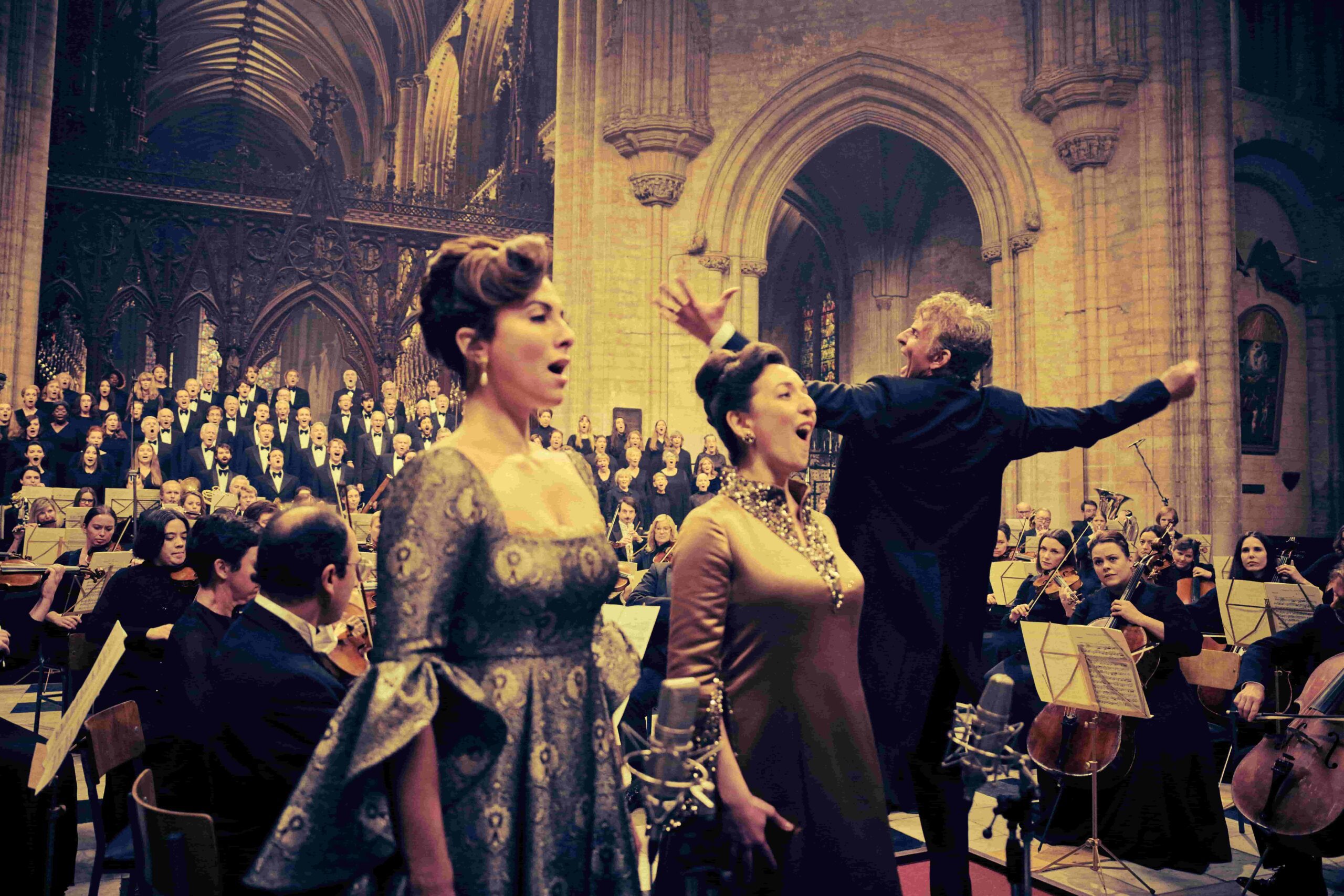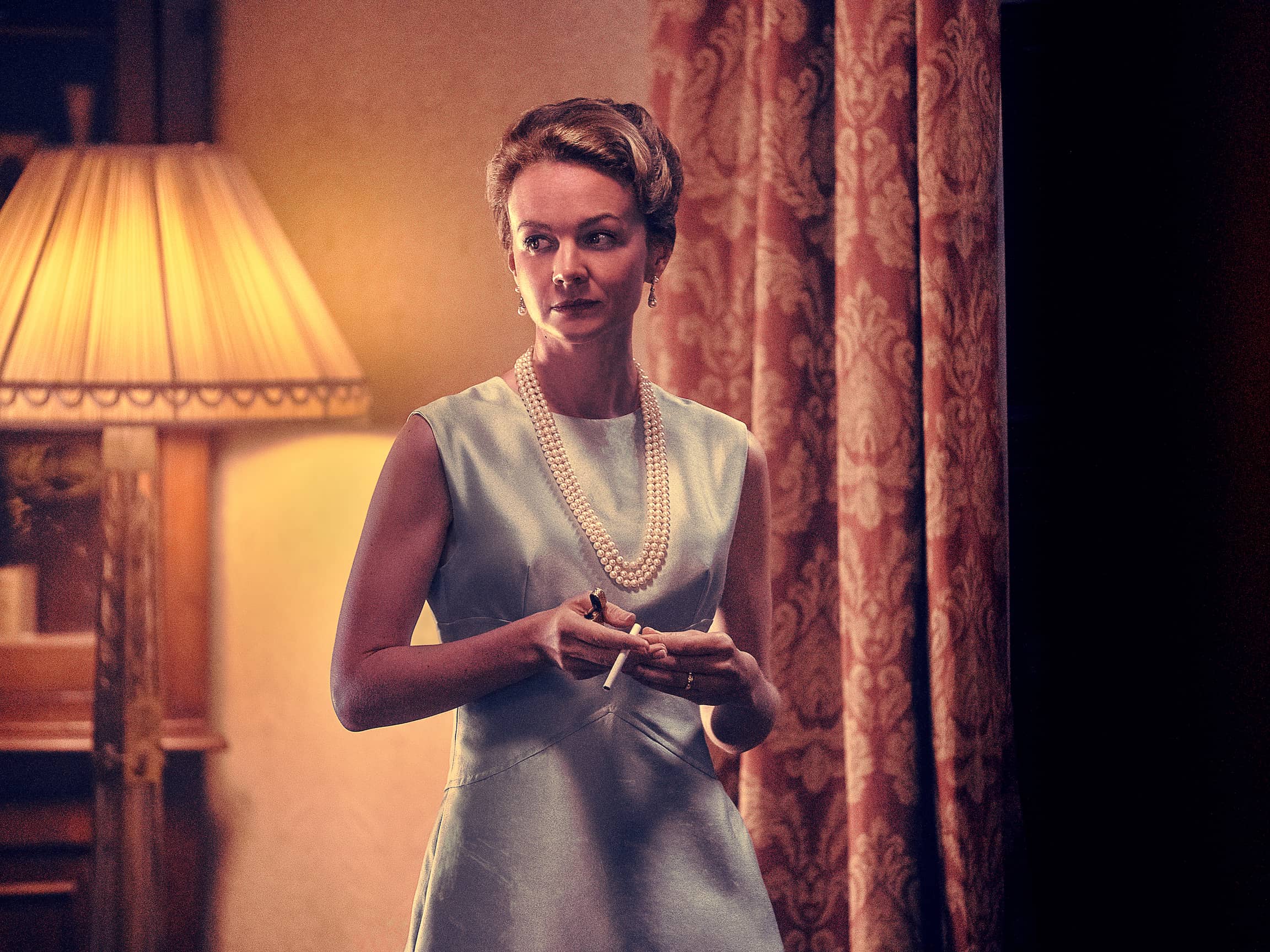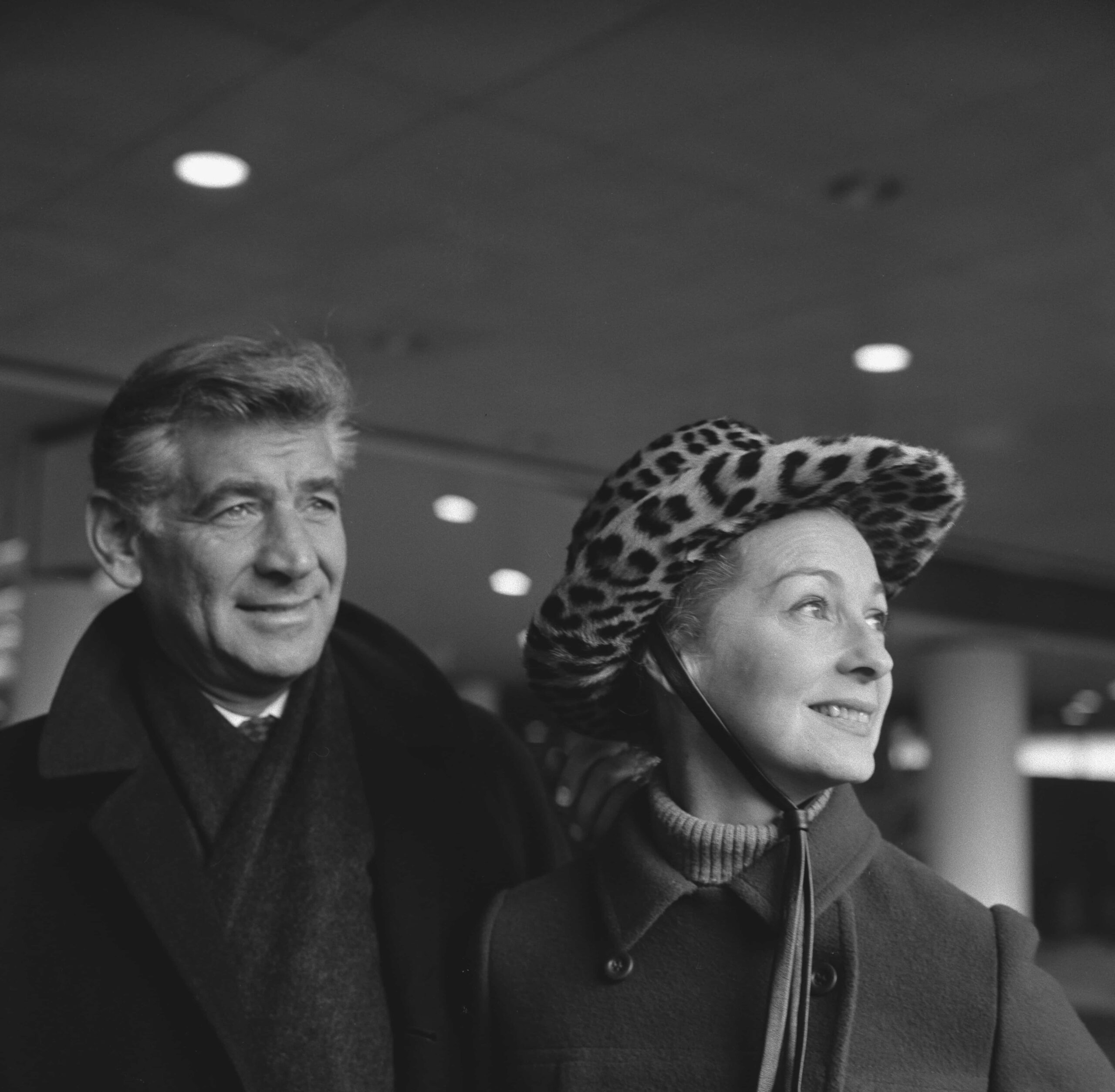“A work of art does not answer questions, it provokes them.” So wrote conductor and composer Leonard Bernstein in 1962. Bernstein led orchestras worldwide, most notably the New York Philharmonic, where he was music director through the 1960s, bringing classical music to the masses in North America through countless television broadcasts. Bernstein also produced a great deal of his own art, including operas Candide and A Quiet Place, the musical West Side Story and music for films like On the Waterfront. He’s considered one of the most pivotal people in the history of American classical music, winning 23 Grammys, 10 Emmys, two Tonys and an Oscar nomination, among myriad other achievements. Proudly Jewish, he was also, in the words of his West Side Story playwright Arthur Laurents, “a gay man who got married [to a woman]. He wasn’t conflicted about his sexual orientation at all.”
Bernstein’s quote about provoking questions opens Maestro, the new biopic directed by Bradley Cooper (A Star Is Born), with Cooper himself cast as Bernstein. It’s a fitting aphorism, especially when it comes to the film’s approach to Bernstein’s sexuality. Unlike numerous other biographical treatments, the film embraces Bernstein’s queerness, but many will take issue with how that embrace takes shape.
There are books on practically every aspect of Bernstein’s existence. The 2012 biography Dinner with Lenny: The Last Long Interview with Leonard Bernstein by journalist Jonathan Cott is centred around Bernstein’s final significant interview, conducted just a year before his death. The pair spoke for 12 hours, and the conversation is fascinating. The book really hammers home Bernstein’s unyielding love of music, and just how deeply connected he is to the art form. It also explores personal elements of Bernstein’s life, like how much he needed other people. “You need love,” Bernstein tells Cott, “and that’s why I have ten thousand intimate friends. Which is unfair to them because I can’t give any one of them everything.” But the interview has its limitations—while an invaluable resource for those wanting to understand Bernstein’s relationship to music, it is scant on specifics of his personal life. Bernstein’s sexuality is somehow never discussed.

Soloists Isabel Leonard and Rosa Feola with Cooper. Credit: Jason McDonald/Netflix
One of the later entries to the corpus is the surprisingly touching Dearest Lenny: Letters from Japan and the Making of the World Maestro by Mari Yoshihara, which follows Bernstein’s romantic relationship with a young Japanese man, Kunihiko Hashimoto, during the last decade of Bernstein’s life.
Perhaps the closest thing to a definitive look at Bernstein comes from Humphrey Burton’s 1994 biography Leonard Bernstein. Burton, who had a 20-year working relationship with Bernstein, provides a comprehensive and intense look at the maestro’s life, detailing everything from his upbringing in Lawrence, Massachusetts, to his education at Harvard and the Curtis Institute of Music in Philadelphia, to his ascent to superstardom and international fame, with numerous sections devoted to specific compositions and work with particular orchestras. Unlike most other books written about Bernstein, Burton doesn’t shy away from Bernstein’s queerness and particularly homes in on how he struggled with his sexual orientation his entire life. (Interestingly, Burton refers to Hashimoto only once, as a “Japanese liaison officer and friend,” with no hint of their relationship.)
Burton notes that the vast amount of material he uncovered at the Leonard Bernstein Collection at the Library of Congress, included evidence of “over 40 male romantic encounters,” adding that, “many of these are extraordinary, revealing so many aspects of gay history.” Burton mentions a “shocking” letter to Bernstein from Harold Lang, one of the dancers in the 1944 Jerome Robbins ballet Fancy Free, in which Lang writes to Bernstein, regretting that he has no photograph of them together, but adds, ‘‘I still have the bite-marks.” Burton concludes, “Maybe it was a joke.” Burton discusses many letters that provide evidence of Bernstein’s sexual relationships with other men, but it is simply impossible to infer tone from many of them. Maybe the “bite-marks” comment was in jest, maybe not—only Bernstein and Lang would know for sure.
Exploring the queerness of historical figures is always challenging. Bernstein came of age in the 1940s when homosexuality was extremely taboo (to put it gently). Being openly gay could have cost Bernstein everything—not only on a familial level, but a professional one too. Even when Bernstein passed in 1990, homosexuality was still nowhere near being accepted. So when it comes to queerness, biographers not only have to deal with their subject’s masquerades and dissembling, they need to be aware of their own blinkers and prejudices as well.

Carey Mulligan stars as Felicia Montealegre, Bernstein’s wife. Credit: Jason McDonald/Netflix
As a biography, Maestro the film runs into issues of its own. For newcomers looking to understand how Bernstein changed the face of American classical music, you won’t find much help here. Specific details are incredibly sparse. For example, when the Costa Rican-Chilean actress Felicia Montealegre (Carey Mulligan), Bernstein’s future wife, meets him for the first time, she’s introduced fleetingly to characters named Betty and Adolph. For those familiar, they’ll recognize the pair as Betty Comden and Adolph Green, whose contributions to the American musical are immense (musicals Wonderful Town, Peter Pan, Bells Are Ringing, among many others). But for the unfamiliar, they’re simply Betty and Adolph; the film only presents us their first names and cheerful smiles.
The same applies to Bernstein himself. Works like Candide and West Side Story are barely even mentioned and exist largely as musical cues within the film—a sort of “if you know, you know” wink to those already familiar with Bernstein’s accomplishments. Maestro features a pair of interviews with Bernstein; they provide the only real context for his career in the expository dialogue delivered by the interviewers.
To be fair, that is not what Maestro is trying to achieve. Cooper, who wrote the film with Josh Singer (Spotlight, The Post), is clearly aware of the wealth of information on Bernstein already available. Instead, Maestro aims to capture the spirit of the man particularly through the lens of his relationship with what many consider the great love of his life, Felicia, whom Bernstein married in 1951. While Montealegre plays an important role in Bernstein’s life, the dynamics of their relationship are rarely explored. That gives Maestro an opportunity to shine new light on a critical aspect of Bernstein’s life. Bernstein and Montealegre were married for 27 years, until separated by her passing in 1978. In Maestro, Felicia is clearly aware that Lenny wasn’t exclusively attracted to her, and was indeed sexually attracted to men. Before they wed, she tells him, “I know exactly who you are … let’s give it a whirl.”

The real-life Leonard Bernstein and Felicia Montealegre seen on a U.K. visit in 1966. Credit: Evening Standard/Hulton Archive/Getty Images
This awareness is amply documented in The Leonard Bernstein Letters, a collection of hundreds of letters written to and by Bernstein, edited by Nigel Simeone. A letter from Felicia from before they were married reads: “You are a homosexual and many never change—you don’t admit to the possibility of a double life, but if your peace of mind, your health, your whole nervous system depend on a certain sexual pattern what can you do? … I am willing to accept you as you are, without being a martyr or sacrificing myself on the L.B. altar.” Maestro spends a lot of time inside Felicia’s perspective—while there is clearly so much love in her heart for Lenny, much of the film finds her reckoning with the choice she’s made, marrying and committing herself wholly to a man who cannot love her the way she needs to be loved.
Exploring Felicia’s life in detail is an interesting way to tell us more about Lenny—specifically, how such a wildly charismatic, completely unique man impacted those around him. We also see it in the eyes of supporting characters, particularly musician and TV producer David Oppenheim (Matt Bomer). The two men were lovers, and the film suggests—through one devastating glance—that Bernstein effectively chose Felicia over Oppenheim. Both men eventually married women—in one scene, Bernstein sees Oppenheim in the park with his wife and baby. He approaches the child and says coyly, “I slept with both your parents … what can I say, I love too much!”
Toward the end of the film, in his final years, Cooper opts to show Bernstein’s final days triumphantly, having him dance the night away at a bar as the song “Shout” by Tears for Fears blasts. He romantically embraces a man many decades younger than him, who’s clearly drawn in by Bernstein’s incredible magnetism. No longer in a marriage that forced him to shutter a part of his identity, it seems Bernstein feels truly at peace here.
There is another lingering question at the heart of Maestro, and indeed all biographies of Bernstein: was he gay or bisexual? There doesn’t seem to be any definitive answer, but the consensus seems to suggest he was a gay man, particularly in the eyes of people like Arthur Laurents. But Maestro—like Burton’s biography—seems to suggest otherwise, emphasizing both the platonic and sexual attraction Lenny had for Felicia.
Maestro is true to Bernstein’s quote about art provoking questions: it captures the essence of this contradictory genius, a true hedonist who loved sex, music and all the things that brought him passion and joy in life. A man of multitudes, there’s no simple answer to life like Bernstein’s.
Maestro opens theatrically in North America on Nov. 22, coming to Netflix on Dec. 20.


 Why you can trust Xtra
Why you can trust Xtra


